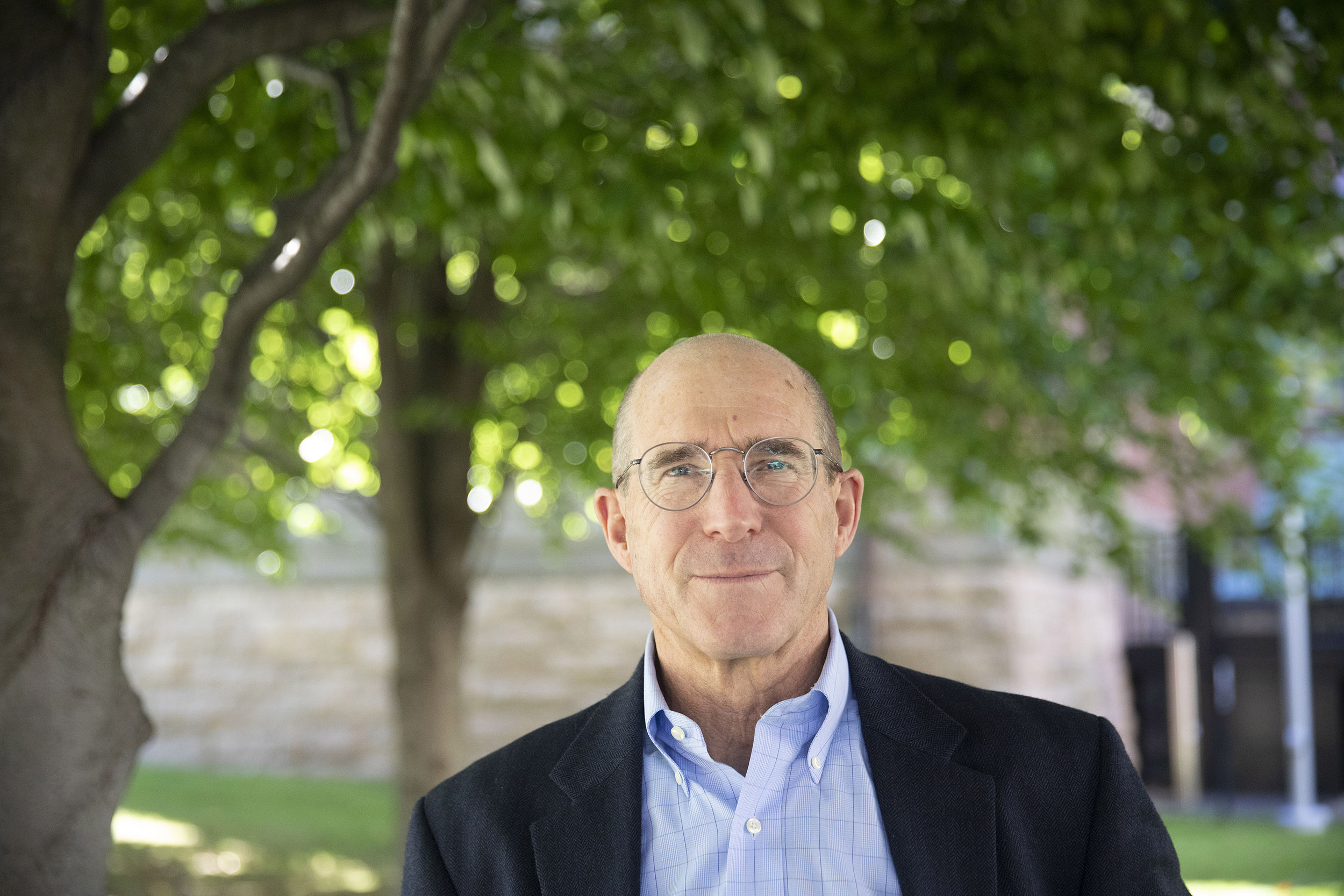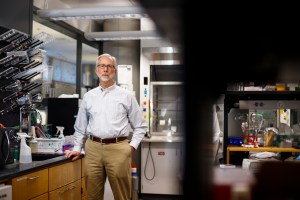Launching Salata Institute to marshal Harvard resources to fight climate crisis
Jim Stock discusses what’s ahead for innovative, cross-disciplinary, University-wide effort
On Wednesday, Harvard will launch the Salata Institute for Climate and Sustainability, a cutting-edge initiative designed to leverage and expand the University’s teaching and research in the area and foster cross-disciplinary efforts as a global leader in the climate crisis battle. University leaders and climate experts, along with Melanie and Jean Salata, whose generous gift made the institute possible, will join to mark the occasion. When the initiative was announced in June, Jim Stock, vice provost for climate and sustainability, was named leader of the University-wide venture. In an interview with the Gazette, Stock spoke about how the Salata Institute is poised to bring together the best of Harvard across all of its departments and Schools to advance knowledge and find creative, real-world solutions to the climate crisis.
Q&A
Jim Stock
GAZETTE: In the past, you have said that the scope of the climate problem demands a big tent for solutions. How does Salata help fulfill that need, and what will be different about this approach?
STOCK: The core feature of the Salata Institute is that it’s a central University effort that spans all of Harvard’s Schools. The challenges of climate change affect almost all of what we do here at Harvard. In all our Schools, Harvard experts are doing deep and influential work on the many aspects and implications of climate change. What the Salata Institute brings to the table is the ability take these disparate communities and pull them together at the University level. The biggest problems posed by climate change cut across Schools and disciplines, so by pulling together faculty and students from throughout Harvard, we’ll be better able to tackle those big challenges. Our goal is to harness the forces and strengths of Harvard so that collectively — faculty, students, staff, and alumni — we can put our shoulder to the wheel to really drive meaningful, constructive climate progress.

Jim Stock.
File photo by Kris Snibbe/Harvard Staff Photographer
GAZETTE: How will the institute strengthen Harvard’s role in tackling the challenges faced due to climate change?
STOCK: Let me stress that we are starting from a position of strength. Our faculty include international leaders in the fields of climate science, environmental and climate law, international climate negotiations, engineering, environmental humanities, energy system modeling, business sustainability, and health and ecosystem impacts of climate change, to mention only a few. We have increasingly many courses on climate-related topics. Institutionally, for years the Harvard University Center for the Environment has created a community of climate and environmental scholars and has provided important educational opportunities to our students. And many of our students are deeply committed to making forward progress on the myriad climate challenges we are facing.
Because the Salata Institute is a Harvard-wide initiative, it can pull together and amplify these strengths. It can draw on Harvard’s global convening power. Our Schools are individually prominent — leaders — in their own areas. But it is the University’s global reputation that will provide both a higher level of visibility and a higher degree of impact. The Salata Institute will be able to bring together stakeholders across a wide range of issues. By augmenting those groups with leading thinkers from Harvard and beyond, we will be able to drive practical solutions to the pressing climate change problems of today and tomorrow.
“Our goal is to harness the forces and strengths of Harvard so that collectively — faculty, students, staff, and alumni — we can put our shoulder to the wheel to really drive meaningful, constructive climate progress.”
Jim Stock, vice provost for climate and sustainability
GAZETTE: The institute was announced in June, and you’ve already begun this work. In the past few months, what’s been the first order of business, and what can the Harvard community expect in the coming months?
STOCK: We’ve been working on four parallel tracks. The first track is enhancing research, especially research that goes across the different Schools, spans different disciplines, and focuses on real-world, impactful climate solutions. That research has been spearheaded by a program that we’re calling the Climate Research Clusters Program, which will give significant grants to ambitious, cross-School efforts that are focused on impactful solutions to climate problems. We received 43 first-round proposals, which were presented in a brainstorming session in June, and we’re expecting to announce the awards in the next few months. This will be an ongoing opportunity and an ongoing program of the institute.
A second stream of work is climate education. Back in the spring we set up a committee to review undergraduate and graduate climate education, and the institute will help implement its recommendations. At the center of that work will be meeting the remaining unmet demand for climate courses at Harvard and working across different Schools to provide a coherent and ambitious climate education. We need to prepare our students to be the climate leaders of tomorrow — that’s one of the exciting tasks of the climate initiative and the institute, one for which there is a lot of enthusiasm across our community.
A third thing that we’re working on is hiring new faculty and engaging more faculty on climate-related work. There’s been a lot of energy already in this regard: The Kennedy School made several offers last year in climate-related areas, and the Faculty of Arts and Sciences and SEAS are doing climate-related cluster searches this year. These are significant commitments, which will expand the number of world-leading faculty working on climate issues.
Finally, the fourth area where we’ll be doing work is expanding our external impact. The institute’s ability to pull together faculty from across the University — and to provide resources to support that joint work — combined with its ability to harness Harvard’s global convening power will allow us to reach a new level of visibility and impact. We’ll be rolling this out over the coming year, so stay tuned.
GAZETTE: What do you feel is most important in terms of positioning the institute to achieve its long-term mission?
STOCK: Harvard has such a strong base — and so much potential. There’s tremendous support among the students, faculty, and alumni for doing more. Thanks to the generosity of Melanie and Jean Salata, we now have the foundation for harnessing that enthusiasm. The Salata Institute will enable taking our impact to the next level, so that Harvard is known for its leadership in salient, relevant, and impactful climate research and teaching.
GAZETTE: What should we expect a year from now as we think about the institute and how will you measure success?
STOCK: Progress across the board on collaborative research, education, faculty hiring, and engagement. Looking further ahead, an important goal is for prospective students who want to dedicate their education to tackling climate change to think of Harvard first.
Achieving both our short- and long-term goals will require enthusiastic support and engagement by our full community, and an embrace of the cross-School mission. The Salata Institute will be the hub, the core institution, for achieving that mission, and we are off to an exciting start.





